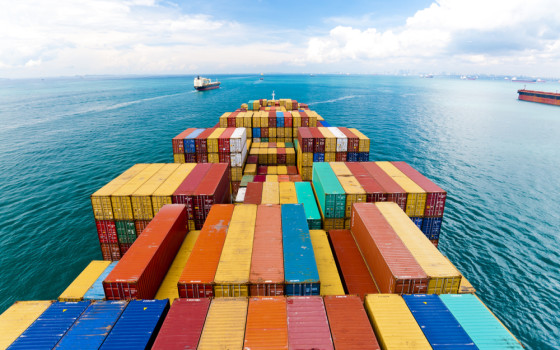
After a 6-year hiatus, the door opened for the return of negotiations on a free trade agreement between the European Union and the Philippines

- Europe and Arabs
- Monday , 31 July 2023 12:25 PM GMT
Brussels: Europe and the Arabs
The European Union and the Philippines today announced their intention to explore resuming negotiations for an ambitious, modern and balanced Free Trade Agreement (FTA) - with sustainability at its core. The EU and the Philippines will soon begin a bilateral "scoping process" to assess the extent to which they share a mutual understanding on a future free trade agreement. If this process concludes successfully, and after consultations with member states, the EU and the Philippines will be in a position to resume FTA negotiations.
Ursula von der Leyen, Chairperson of the Commission, said: “The Philippines is a key partner for us in the Indo-Pacific region, and with the launch of this scoping exercise, we are paving the way to take our partnership to the next level. Together, we will realize the full potential of our relationship, creating new opportunities for our businesses and consumers with Supporting the green transition and promoting a fair economy.
Following the resumption of FTA talks with Thailand earlier this year, this announcement underscores the key importance of the Indo-Pacific region to Europe's trade agenda, paving the way for deeper trade relations with another vibrant economy in Southeast Asia and further strengthening the region. The European Union's strategic engagement with this booming region.
The EU aims for a comprehensive free trade agreement with the Philippines that includes ambitious market access commitments, prompt and effective sanitary and phytosanitary measures, as well as protection of intellectual property rights, including geographical indications. Sustainability will also be at the core of this agreement, with robust and enforceable trade and sustainable development (TSD) disciplines. These will align with the Commission's June 2022 TSD review call, support high levels of protection for workers' rights, the environment, and the achievement of ambitious climate targets.
The EU and the Philippines already have well-established trade relations, with clear potential for closer ties:
The value of goods trade amounted to more than 18.4 billion euros in 2022, while the value of services trade amounted to 4.7 billion euros in 2021;
The European Union is the fourth largest trading partner of the Philippines.
The Philippines, the fifth largest economy in the ASEAN region, is the EU's seventh most important trading partner in the region (and 41st worldwide);
The European Union is one of the largest investors in the Philippines, as the volume of foreign direct investment of the European Union in the Philippines reached 13.7 billion euros in 2021.
The Philippines currently enjoys trade preferences under the EU's General Scheme of Preferences+ (GSP+), a special incentive arrangement for sustainable development and good governance that grants tariff-free EU market access for two-thirds of tariff lines. This enhanced access is conditional on the Philippines' implementation of a range of international agreements covering issues such as human and labor rights, good governance, and environmental protection. The EU will continue to monitor the Philippines' compliance with its international obligations in these areas and maintain its ongoing dialogue to encourage further improvement.
The Philippines is among the fastest growing emerging economies in the world, recording the second highest economic growth rate in ASEAN with a GDP growth of 7.6% in 2022. This high economic growth represents a promising growth path and growing economic potential for the Philippines as an important trading partner. Moreover, the Philippines has large reserves of important raw materials, including nickel, copper, and chromite, which are vital to manufacturing green technologies. Combined with the Renewable Philippines' efforts to harvest its renewable energy potential and the recent liberalization of foreign investors in the sector, the Philippines is an important partner in the green transition.
The EU and the Philippines launched FTA negotiations for the first time in 2015. The last round of negotiations was held in 2017, and negotiations have been stalled since then. On June 30, 2022, the new administration took office and indicated its willingness to engage with the European Union on key issues of concern.
The EU Indo-Pacific Strategy 2021 underscored the EU's longstanding interest in resuming FTA negotiations with the Philippines. The EU already has FTAs with two ASEAN countries (Singapore and Vietnam), is negotiating a FTA with Indonesia, will soon resume FTA negotiations with Thailand, and is currently conducting a scoping exercise with Malaysia.
During her visit to Manila today, European Commission President Ursula von der Leyen and Philippine President Ferdinand Marcos launched the Team Europe green economy initiative under the Global Gateway, with a contribution from Team Europe of €466 million.
European Commission President Ursula von der Leyen said: “Global Gateway, the EU's investment strategy for the world, will support the Philippines on its path to a sustainable future. We will invest in the transition to a circular economy and green energy generation. We will also provide expertise, training and technology transfer, because these are The way to empower local communities, and that's what the European Union is interested in."
Team Europe's green economy initiative will develop an industry-led alternative model to the current plastic waste management approach, leading to more sustainable plastic value chains and a reduction in plastic waste and marine litter.












No Comments Found